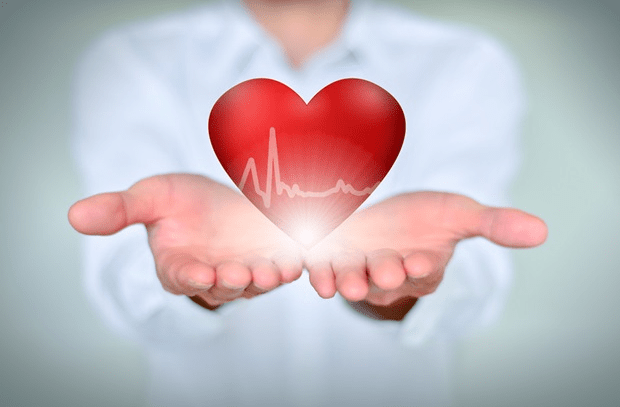Common symptoms of Heart Attack should be known to every body if he or she is 40 plus in age. In this article, we have identified common symptoms of hearts diseases such as heart attack and heart failure.
Heart diseases come in many types, each one having its own symptoms and treatment. For some, changes in lifestyle and diet can make a massive difference in improving their health. Others may need surgery to make the pump work well again.
Coronary Artery Disease (CAD)
Coronary Artery Disease or CAD is the most common type of heart disease. In this case, coronary arteries — the vessels that supply blood to your heart become blocked at various points.
This can lead to a decrease in the flow of blood to the heart muscle, containing it from getting vital oxygen.
The disease is usually a result of atherosclerosis, a condition that is recognized with the hardening of the arteries. Common symptoms of Heart Attack.
The following factors contribute to the risk of CAD:
- Age (For men, the risk of heart disease advances after age 55; for women, the risk grows sharply after menopause.)
- Being inactive
- Having diabetes or metabolic syndrome
- Genetics
- High blood pressure
- High levels of LDL — “bad” cholesterol or low levels of HDL — “good” cholesterol
- Obesity
- Smoking
- Stress
Heart Arrhythmias
The irregular beating pattern of the heart is called Arrhythmias. Serious arrhythmias often originate from other heart problems but may also occur on their own.
Heart Failure
Heart Failure is when the heart does not pump enough blood than the adequate amount. It is usually the result of coronary artery disease, but it can also occur from thyroid disease, high blood pressure, heart muscle disease (cardiomyopathy), or particular other conditions.
Heart Valve Disease
The human heart has four valves that open and close to head blood flow between your heart’s four chambers, the lungs, and blood vessels. An irregularity could make it hard for a valve to open and close the right way.
When that happens, your blood flow could be blocked or blood can leak. Common symptoms of Heart Attack.
The causes of heart valve problems include infections such as rheumatic fever, congenital heart disease, high blood pressure, coronary artery disease, resulting in a heart attack.
Diseases of the heart valves include:
- Endocarditis. This infection is usually caused by bacteria, which may enter the blood and take root in your heart during illness, after surgery, or after using intravenous drugs. It often happens if you already have valve problems. Antibiotics can usually cure it, but the disease is life threatening without treatment.
If your heart valves are seriously damaged as a result of endocarditis, you may need a valve replacement surgery. - Rheumatic heart disease. This condition forms when your heart muscle and valves are damaged by rheumatic fever, which is linked to strep throat and scarlet fever.
Rheumatic heart disease was more common earlier in the 20th century. But doctors are now able to prevent it by using antibiotics to treat the diseases that lead to it. If you do get it, the symptoms usually show up many years after the infection.
Pericardial Disease
Any disease of the pericardium, the sac that surrounds your heart, is called a pericardial disease. One of the more common diseases is pericarditis or inflammation of the pericardium.
It’s usually caused by an infection with a virus, inflammatory diseases such as lupus or rheumatoid arthritis, or injury to your pericardium. Pericarditis often follows open heart surgery.
Cardiomyopathy (Heart Muscle Disease)
Cardiomyopathy is a disease of your heart muscle, or myocardium. It gets stretched, thickened, or stiff. Your heart may get too weak to pump well. Heart diseases are dangerous for health.
There are many possible causes of the disease, including genetic heart conditions, reactions to certain drugs or toxins (such as alcohol), and infections from a virus. Sometimes, chemotherapy causes cardiomyopathy.
Many times, doctors can’t find the exact cause. Common symptoms of Heart Attack.
Congenital Heart Disease
Congenital heart disease happens when something goes wrong while the heart is forming in a baby that’s still in the womb. The heart abnormality sometimes leads to problems right after birth, but other times there aren’t any symptoms until you become an adult.
Septal abnormalities are among the most common congenital heart problems. These are holes in the wall that separates the left and right sides of your heart. You can get a procedure to patch the hole.
Another type of abnormality is called pulmonary stenosis. A narrow valve causes a decrease in the flow of blood to your lungs. A procedure or surgery can open or replace the valve. Common symptoms of Heart Attack.
In some babies, a small blood vessel known as the ductus arteriosus doesn’t close up at birth as it should. When this happens, some blood leaks back into the pulmonary artery, which puts strain on your heart. Doctors can treat this with surgery or a procedure or sometimes with medication.










